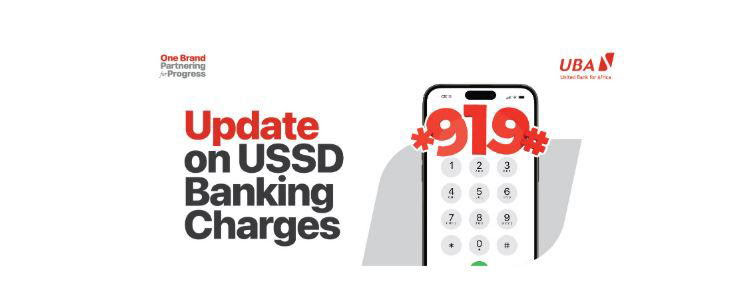13 Banks Clear USSD Debts as Nigeria Transitions to Airtime-Based Billing System.
- Home
- 13 Banks Clear USSD Debts as Nigeria Transitions to Airtime-Based Billing System.

13 Banks Clear USSD Debts as Nigeria Transitions to Airtime-Based Billing System.
13 Banks Clear USSD Debts as Nigeria Transitions to Airtime-Based Billing System
Thirteen commercial banks in Nigeria have fully paid off their debts related to Unstructured Supplementary Service Data (USSD) services owed to Mobile Network Operators (MNOs), while three others are close to completing their repayments, having settled over 95% of what they owe.
This development was confirmed by the Chairman of the Association of Licensed Telecommunications Operators of Nigeria (ALTON), Engr. Gbenga Adebayo, during a virtual session organized by MTN Nigeria.
The resolution of these debts is a key step toward introducing a new billing model for USSD banking services. Under this model, fees for USSD transactions will now be deducted directly from customers’ airtime balances, rather than from their bank accounts.
As of January 2025, the total outstanding USSD debt stood at ₦180 billion. Of the 17 banks initially involved (excluding Heritage Bank, which is no longer solvent), most have now cleared their obligations.
According to Adebayo, even banks that still owe will be allowed to adopt the new airtime billing model once their debts are fully repaid. They may also choose to remain on the older corporate billing model if they prefer.
This shift to end-user billing is the result of ongoing collaboration between telecom providers and banks, supported by regulators. Since 2021, efforts have been made to standardize USSD transaction fees, culminating in a fixed charge of ₦6.98 per transaction.
MTN’s Chief Enterprise Business Officer, Lynda Saint-Nwafor, explained that under the new system, customers will now pay for USSD services through airtime deductions. Previously, charges were taken from bank balances, a method that often led to disputes over transparency and control.
To improve clarity, an Application Programming Interface (API) was introduced, allowing banks full control over their USSD codes and customer verification. For example, when a customer initiates a transaction using GTBank’s \*737# code, the bank confirms the customer’s details before applying the ₦6.98 charge, while the MNO simply enables the connection.
To ensure a smooth rollout of the new system, a uniform process has been established:
1. Consent Notification: When customers dial a USSD code, they receive a message asking them to confirm the ₦6.98 charge from their airtime.
2. System Check: If they agree, the telecom provider verifies the bank’s availability via a USSD aggregator to ensure the transaction can proceed.
3. Completion: Once verified, the transaction is completed and the airtime deducted.
All telecom operators have standardized how they notify customers about successful or failed transactions, making it clear whether any issue originated from the bank or the telecom network.
Additionally, when customers use direct USSD strings to purchase airtime or data (e.g., *737*10000# for ₦10,000 airtime), these transactions are free. Customers are encouraged to use such specific codes to avoid extra charges.
Any cases of double billing—deducting both airtime and from bank accounts—should be reported directly to the customer’s bank.
Adebayo emphasized that for users, there’s no increase in cost. Customers were already paying the ₦6.98 fee; it’s simply now being deducted from airtime instead of their bank accounts. He also stressed that this system promotes greater transparency, with regular performance reports being shared with regulators.
If a transaction fails due to telecom network issues, the fee will not be charged or will be refunded. However, if the failure is caused by the bank—such as insufficient funds or system downtime—the charge will still apply, with the reason clearly stated.
Finally, concerns were raised about USSD access for users in rural or unbanked areas. Adebayo responded that the ₦6.98 fee is significantly lower than the cost of traveling to a physical bank, and that customers with money in their bank accounts can still use USSD services to purchase airtime at no extra cost—even when they have no airtime to begin with.
USSD remains a key tool for expanding financial access, and all stakeholders—banks, telecoms, and regulators—are working together to maintain and improve the service.

Content & Editorial Manager – Leads the creation, review, and publication of high-quality news and media content. She ensures that all editorial work reflects the organization’s standards of accuracy, professionalism, and relevance, while also engaging and informing the audience.
As the key driver of TokinPoint Media LTD’s editorial voice, the manager oversees content planning, assigns tasks to writers or editors, enforces deadlines, and ensures consistency across all platforms. She also plays a strategic role in aligning content with audience interests and search engine optimization (SEO) best practices.
Discover more from TokinPoint
Subscribe to get the latest posts sent to your email.
- Share
Faith Kegh
Content & Editorial Manager - Leads the creation, review, and publication of high-quality news and media content. She ensures that all editorial work reflects the organization’s standards of accuracy, professionalism, and relevance, while also engaging and informing the audience.
As the key driver of TokinPoint Media LTD's editorial voice, the manager oversees content planning, assigns tasks to writers or editors, enforces deadlines, and ensures consistency across all platforms. She also plays a strategic role in aligning content with audience interests and search engine optimization (SEO) best practices.
